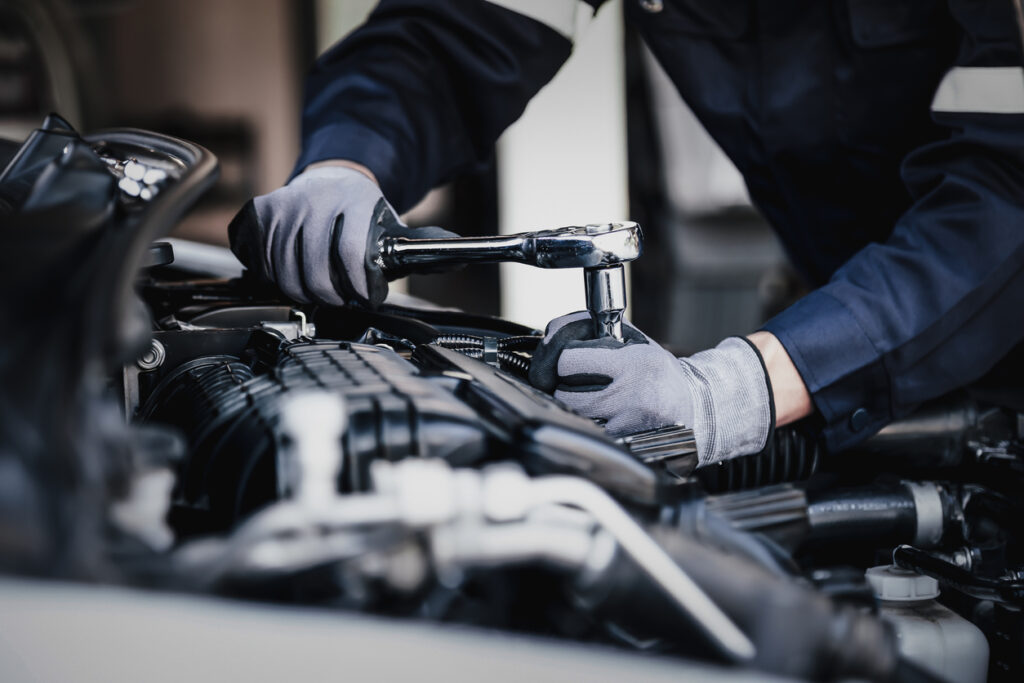You will be taught automotive maintenance in our first-class workshops and classrooms and will quickly start to inspect, repair and maintain a variety of vehicles that we provide, all whilst using professional quality tools and equipment. Of course, it’s not all about practical skills, employers need enthusiastic and engaged employees to meet the demands of the ever-evolving motor industry to help their business grow. You will therefore need to gain knowledge of how the industry works and the role we perform in keeping other industries together and operational, such as the emergency services or armed forces. This will give you the very best opportunity to progress and forge a successful and rewarding career in the automotive world.
Units that you will study include:
- Engine operation and components: This unit will teach you what’s inside an engine, how they operate, the difference between petrol and diesel engines and how to maintain them, including stripping down and rebuilding engines on stands.
- Lubrication system components and maintenance: This unit takes a closer look at how engines use oil to keep them moving smoothly. You’ll learn why oil is important, how it is pumped around the engine and how to perform regular oil and filter changes.
- Cooling system components and maintenance: Engines naturally build up a large amount of heat and need to be cooled down. You will learn why we need antifreeze, how radiators work, how to test antifreeze and how to change it.
- Ignition and fuel systems and maintenance: Engines operate by taking in a small amount of fuel and getting it to burn or explode. You will learn how fuel enters the engine for both petrol and diesel engines and how it ignites.
- Steering system components and maintenance: This unit will examine the various components involved in steering systems; this will include older steering box layouts as well as more modern rack and pinion setups. You will also gain experience in inspecting and changing these components as well as an introduction to correcting wheel alignment (tracking).
- Suspension systems components and maintenance: Suspension systems have changed a lot over time, from very basic to far more complex. This unit will teach you about the different components that have been used as well as removing and refitting them.
- Braking systems components and maintenance: The braking system is one of the most important and so it is vital that you learn how to ensure it is maintained to a high standard. You will gain hands-on experience of maintaining and replacing discs and pads as well as drums and shoes. You will also learn the underpinning knowledge of how these systems work.
- Wheels and tyres: Your tyres are the only part of the car in contact with the road, and as such we have to ensure that they are in a good condition for the safety of everyone as well as the performance of the vehicle. You will learn how to inspect tyres, change them and also how to repair punctures.
- Transmission systems components and maintenance: The transmission unit will teach you why cars need clutches and gearboxes and how they work, as well as introducing you to automatic gearboxes and their operation.
- Vehicle electrics: Modern light vehicles have a large number of electrical circuits and this is only increasing. You will learn about the fundamentals of electrical circuits as well as how these are used in an automotive application. You will also learn repair methods and the differences between them.
- Tools, Equipment and Consumable Materials for Vehicle Maintenance: This unit will give you the knowledge to correctly select, use and maintain tools for different vehicle repairs as well as using consumable materials efficiently such as cleaning products, oils, antifreeze or fixings.
- Health, safety in the workplace: Within this unit you will learn about health and safety regulations, roles and responsibilities, accident and emergency reporting procedures and documentation. Together with hazards, health and welfare in the workplace, it also covers working safely in a workshop, working with pneumatic and electrical power tools and fire emergency procedures.
Apply for this course
Start date: 22/09/2025
Want to talk to someone?
Do you have a question that we haven't answered so far? Talk to our admissions team. We're here Monday-Friday 8.30am-4.30pm.






